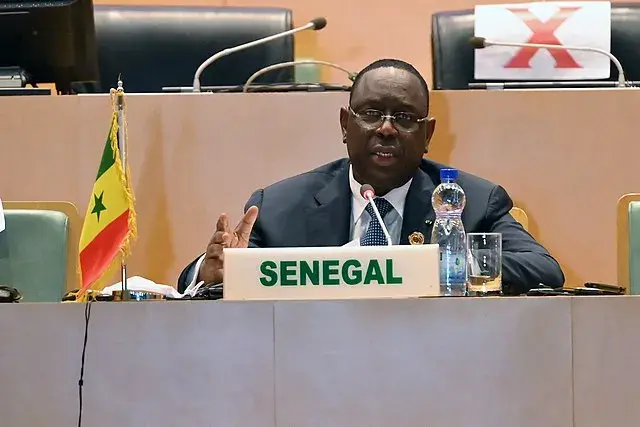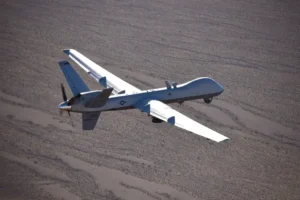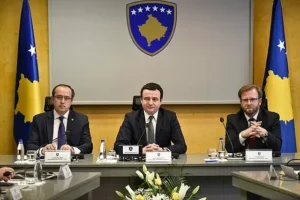Senegal faces political turmoil as parliament votes to postpone presidential election amid protests and clashes.

Senegal’s parliament has approved a bill to push back the presidential election to December 15, in a turbulent session that saw opposition MPs forcibly removed from the chamber as they protested President Macky Sall’s decision to postpone the election.
Sall declared on Saturday that the election, which was due to take place on February 25, would be put off, plunging the West African country into a constitutional crisis and sparking violent demonstrations.
The bill, which delays the election until December and extends Sall’s term until his successor takes office, received the support of 105 MPs out of 165 late on Monday.
The bill initially proposed an election date of August 25, and the further postponement is likely to fuel more unrest. The president, who has completed the maximum two terms, was supposed to step down on April 2.
Sall has previously stated that he has no intention to prolong his term, but protesters are doubtful.
As the MPs debated the bill on Monday, security forces used tear gas against protesters who had gathered outside the parliament in Dakar, setting tyres on fire and denouncing Sall.
One of the protesters, Malick Diouf, 37, said he did not have a favourite candidate or a voting card, but felt it was important to join the protest.
“The main thing for me is to say ‘no’ to this political agenda, this coup de force to try to stay in power,” he said to the AFP news agency.
Opposition leaders had slammed the proposed postponement, which came just as the campaign was about to start, as a “constitutional coup” and an attack on democracy.
The atmosphere in the parliament was also tense, with some MPs pushing and shoving each other, leading to a brief break.
Security forces later entered the building and removed several opposition MPs who had taken over the central podium and were trying to stop the voting process.
“What you are doing is not democratic, it’s not republican,” said Guy Marius Sagna, who was among the rebel MPs wearing a sash in the colours of the Senegalese flag.
The elections delay faced strong opposition elsewhere on Monday. At least three of the 20 presidential candidates filed legal appeals against the delay, according to Constitutional Council documents. Two more candidates have vowed to challenge it in court.
Authorities temporarily limited mobile internet access from Sunday night, citing hate messages on social media and threats to public order. Several schools dismissed pupils early.
The private Walf television channel said it was taken off air on Sunday and had its licence cancelled.
“Senegal has been known as a country with a strong democracy but this is no longer the case,” a protester who only gave his first name, Dame, told Reuters. “The only thing we want is a fair election.”
He said he was afraid Sall would hold on to power indefinitely.
The chairman of the African Union Commission, Moussa Faki Mahamat, called on Senegal to resolve its “political dispute through consultation, understanding and dialogue”.
“Senegal has long been regarded as a model of democracy in the region. This is now at risk,” it said in a statement.
“Authorities need to act to prevent violence, control abusive security forces, and stop their crackdown on opposition and media. They should respect freedom of speech, expression and assembly, and restore internet, putting Senegal back on its democratic path.”
The crisis has raised concerns of the kind of violent unrest that erupted in March 2021 and June 2023, which resulted in dozens of deaths and hundreds of arrests.
Sall claimed he postponed the election because of a conflict over the candidate list and suspected corruption within the constitutional body that managed the list.
The opposition Senegalese Democratic Party (PDS), whose candidate was excluded from running due to dual nationality issues, supports the postponement and suggested the delay bill in parliament before Sall’s announcement.
The bill passed with the support of the ruling party and the opposition coalition, which includes PDS.
Other opposition and civil society groups have strongly opposed it, with some saying Sall is trying to delay his exit. The F24 platform, a large group of organisations behind previous protests, and candidate Khalifa Sall, have labelled it an “institutional coup”.







